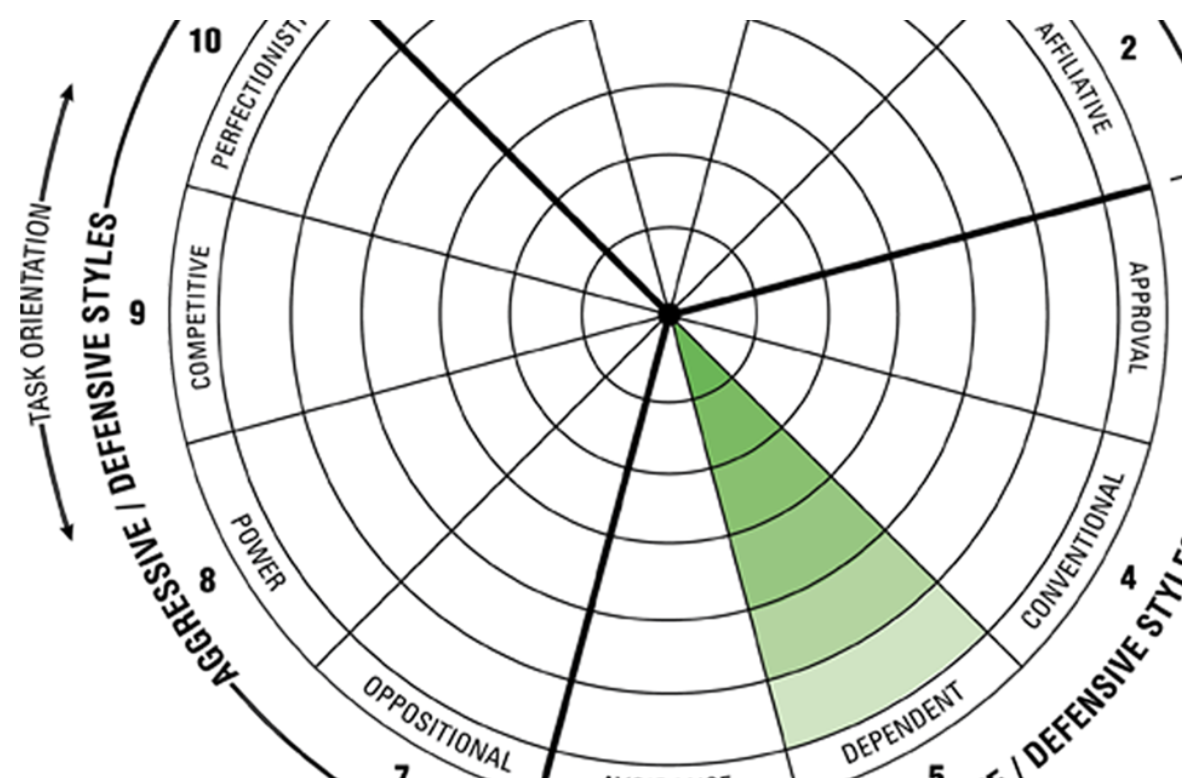Dependency the false commitment
“He who follows another sees nothing, learns nothing, nay, seeks nothing.“ – Sir William Osler
Does your team depend on you too much? Or do you depend too much on your team? You've just started your work day, before you even sit down, one of your team walks into your office and asks for your help on a task she is preparing. Shortly after she left, someone wants to know if you have any time to help them with a project plan that's due by the end of the week. Before you know it, you've spent a lot of your day supporting your team do their jobs, while your own To-Do list is left untouched. It's important for leaders and team members to be resourceful to their colleagues. But it's easy for teams to take advantage of this. Over time, people can develop too much dependency.
The Dependent scale measures the degree to which we feel our efforts do not count. Dependent behaviour originates in a need for security and self-protection, dependent people typically feel that they have very little control over their lives. This type of behaviour may be long-standing, or due to temporary life changes such as a new job, a promotion an illness, or the break-up of a close relationship. When dependent behaviour occurs because of a temporary life change, the feelings of dependency tend to diminish as the situation is resolved.

Situations with the potential to create feelings of dependency are common. Newly promoted people may feel temporarily dependent in their new positions, however, these feelings tend to disappear once they are more comfortable and feel a sense of direction. Dependent people use dependent behaviour as a defence against feeling threatened or being rejected by others.
What are the causes and symptoms of this sin?
- An over-concern with pleasing people, and not questioning others or taking independent action
- A passive attitude
- Feelings of helplessness
- A tendency to be easily influenced
- Unquestioned obedience to authority figures and rules
- A lack of self-respect, which results in feeling unable to accomplish things
- Difficulty making decisions
Inevitably, this sin creates unwritten laws such as "Never challenging superiors" or "Following orders – even when they’re wrong".
These types of norms characterize organizations in which decision-making is centralized and non-participative. Members are expected to do only what they are told and to clear all decisions with superiors. These types of norms detract from quality by making it difficult for people to solve day-to-day problems, take action in a timely manner, or challenge decisions from above that run counter to quality service.
Who hasn't heard in a meeting? "I have to consult my team, or I have to validate it with my boss".
Worse still when it is used as an argument to justify a decision along the lines of: "I understand what you mean, but the management has decided".
In short, when you have a team that is not able to say "NO" it is very likely that you will have a dependent team that will always put problems on the table but never solutions.
How can this sin be avoided?
If you commit it:
- Take an assertiveness, training course, or read a book on the subject. Learn to trust your own judgment and demonstrate your belief in yourself by speaking up more often in groups.
- Realize that no one can make you happy or unhappy. Only you have the power to determine how you feel by controlling what you think.
If you have an organization:
- Don't sanction dissent
- Don't surround yourself with courtiers
Don't miss our next article, in which we will unfold Avoidance as evidence of procrastination. If you want to know more about how to manage change and build resilient organizations, contact us! resilience@avanceacademy.eu
